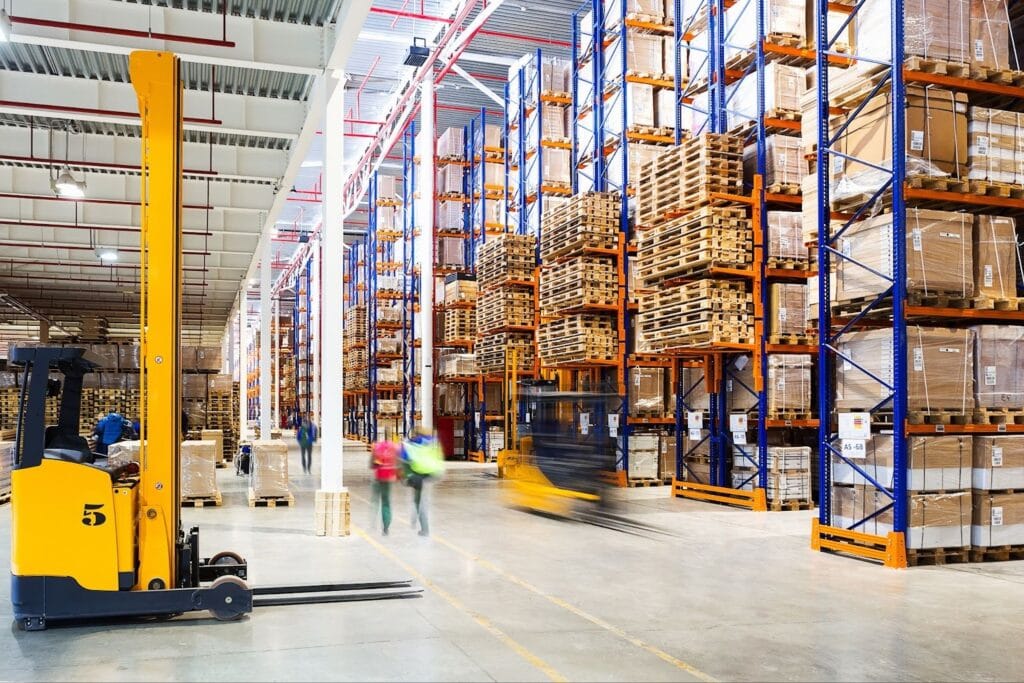Private Warehouse: Benefits, Challenges, and Who Should Use Them

In today’s competitive business landscape, efficient warehouse management is crucial for success. As companies look to optimize their logistics operations, many are considering private and public warehousing as a viable solution.
We’ll explore the ins and outs of private warehouses, delving into their benefits and challenges and determining which businesses stand to gain the most from implementing this storage strategy.
Whether you’re a small startup or an established enterprise, understanding the advantages of private warehousing can help streamline processes and boost your bottom line.
What Is a Private Warehouse?
A private warehouse is a storage facility owned and operated by an individual company or business, designed to store their inventory.
What Is A Private Warehouse Example?
A private warehouse is a prime example of companies controlling their storage and distribution processes. For instance, Walmart operates its vast network of warehouses to manage inventory efficiently while minimizing transportation costs.
A private warehouse allows them to customize the warehouse layout according to their specific needs and ensure proper handling, storage, and protection of goods.
In contrast, public warehouses are owned and operated by a third party company that rents out space for businesses that may not require or have the resources to invest in specialized facilities.
Private Warehouse vs. Public Warehouse
Choosing between a private warehouse and a public warehouse is an important decision for storage solutions.
The primary difference lies in ownership. A company operates and owns private warehouses, while third-party logistics (3PL) providers manage public warehouses.
Each option comes with its own set of advantages and disadvantages. For instance, using a private warehouse offers benefits such as increased security, opportunities for branding, control over inventory management processes, and the ability to rent out excess space for additional revenue.
On the other hand, public warehousing can provide more flexibility for growth opportunities due to its vast network of locations available at various sizes and capacities.
Businesses should carefully weigh these factors alongside their size, budgetary constraints, and future expansion plans when deciding whether to invest in a private or public warehousing solution.
What Are the Advantages Of Private Warehousing?

Private warehousing offers efficient inventory management, reduced transportation costs, better security, flexibility for customization, and branding opportunities.
Efficient Inventory Management
Efficient inventory management is a crucial advantage of private warehousing, allowing businesses to maintain optimal control over their stock levels and storage arrangements.
For example, a company operating within the perishable goods industry could benefit from this efficiency by using private warehousing to consistently rotate its stock based on expiration dates.
Rotating stock helps reduce waste and ensures customers receive fresh products every time they make a purchase.
Efficient inventory management also facilitates better supply chain management and logistics optimization – enabling businesses to streamline their operations and improve overall customer satisfaction.
Reduced Transportation Costs
Private warehousing can offer reduced transportation costs for companies that need to store their products closer to their customers.
By strategically placing geographically dispersed public and private warehouses in key areas, businesses can reduce the distance between their products and consumers with lower transportation costs for multiple clients.
For example, a company like Apple, with its global operations and large customer base, could benefit from having its own private warehouse.
These facilities would allow them to ship directly from nearby locations, eliminating long-distance shipping expenses and customs clearance delays and reducing overall transit time while ensuring faster customer accessibility.
Better Security
One of the most significant advantages of private warehousing is better security. Private warehouses are equipped with state-of-the-art security features for storing goods away from theft, damage, or any other form of loss.
In addition to these measures, private warehouses are often in secure areas with minimal risk of crime.
More Flexibility
Private warehousing provides businesses with more flexibility than public warehouse options. Companies are free to customize their space to suit their specific storage and distribution needs.
Businesses can design their warehouse layout, implement specialized equipment, and control workflow processes without limitations.
Moreover, owning a private warehouse allows companies to expand and contract based on business demand. They can lease out unused parts of the facility until needed again or use it for other purposes.
Private warehousing offers businesses greater ownership over logistics operations, enabling firms to change directions quickly when needed.
It reduces overall expenses and improves service delivery due in large part to having ample supply chain visibility through better inventory management systems.
Branding Opportunities
One significant advantage of private warehousing is the branding opportunities it presents. With complete control over logistics and every aspect of the brand experience, businesses can tailor their storage and shipping processes to meet their needs.
Private warehouses enable customized operations that guarantee consistency with a business’s image and identity. Companies can take ownership of every step in the supply chain, providing an enhanced customer experience that aligns with overall brand goals.
For instance, a clothing retailer might build a high-tech warehouse equipped with conveyor belts and automated systems to handle complex items such as garments with attached sensors or RFID tags that trigger robotic arms to sort them quickly after they arrive on pallets from overseas suppliers.
Can Rent Out Excess Space
Another significant advantage of private warehousing is renting out excess space. Businesses can generate additional income by leasing unused portions of their entire warehouse to other companies or individuals in need of storage solutions.
Private warehouses offer a flexible option for businesses with fluctuating storage needs, allowing them to lease out space as needed and adjust their operations accordingly.
Additionally, this feature provides an opportunity for small businesses or startups to enter the market without investing heavily in property management or construction costs.
Challenges Of Private Warehousing
Private warehouses come with challenges such as higher ownership costs, maintenance/upkeep responsibilities, limited flexibility to adapt to changing needs, and significant capital investment in construction and implementation.
Costs
Operating a private warehouse can come with significant costs. Costs associated with private warehousing include design, operation, maintenance, and holding inventory if turnover is slow.
Building or buying a private warehouse can require considerable capital expenditure and ongoing operating costs.
However, owning a private warehouse also has benefits in terms of greater control and customization options for managing one’s supply chain. Additionally, renting out excess space within a privately owned warehouse can generate additional revenue streams for the owner.
Maintenance/Upkeep
Maintaining a private warehouse can be challenging. Since warehouses are often large and complex structures that require constant monitoring and repair work, these expenses can quickly add up.
Warehouse owners must ensure that the facility always complies with safety equipment regulations, safety training, and industry standards.
Ensuring a well-maintained warehouse comes with benefits, however. For example, a well-maintained warehouse can boost inventory management by providing accurate tracking and forecasting capabilities.
It also ensures better security for your products since you have complete control over access to your facility compared to public warehouses where other companies store their goods.
Maintaining a private warehouse may be costly at times, yet it proves its worth when things run smoothly, making it an excellent long-term investment for businesses looking to streamline their operations while ensuring quality service delivery at all times.
Limited Flexibility
One of the challenges associated with private warehousing is limited flexibility. Private warehouses can restrict a company’s ability to relocate if needed, which could be problematic for businesses that need to expand their operations or move closer to their customer base.
Most warehouse leases are three- or five-year contracts, further limiting a company’s flexibility when it comes to securing space.
Private warehouses can often find themselves purely as a cost center and may have difficulty explaining extra space and labor costs.
Construction and Implementation Investment
One of the biggest challenges of private warehousing is the initial construction and implementation investment. Building a private warehouse from scratch requires significant capital and time and effort for planning, design, and construction.
The cost of land acquisition and permits can also mount up quickly.
Many benefits of having your private warehouse can outweigh these initial costs in the long run. Private warehouses offer greater control over inventory management and distribution networks while reducing transportation costs over time.
FAQs
What is a private warehouse and who should use it? Learn more about the role of private warehouses below.
What is the role of a private warehouse?
A private warehouse acts as a storage facility exclusively owned and run by an organization. It serves to store products until they are shipped out to customers.
The role of a private warehouse is primarily for inventory control, cost savings through efficient logistics management, and direct control over product quality and handling.
Is Amazon a private warehouse?
Amazon is not a private warehouse per se, but they do have numerous fulfillment centers and warehouses that businesses can use to store and ship their products.
Use a Private Warehouse To Streamline Your Storage
Private warehouses offer a host of benefits for companies looking to streamline their storage and shipping processes. From efficient inventory management to reduced transportation costs and increased branding opportunities, owning a private warehouse can be a game-changer.
However, consider challenges like the significant investment required for construction and implementation. Ultimately, whether or not having your own warehouse is right for your company will depend on factors like size, storage needs, budget, and long-term goals.
